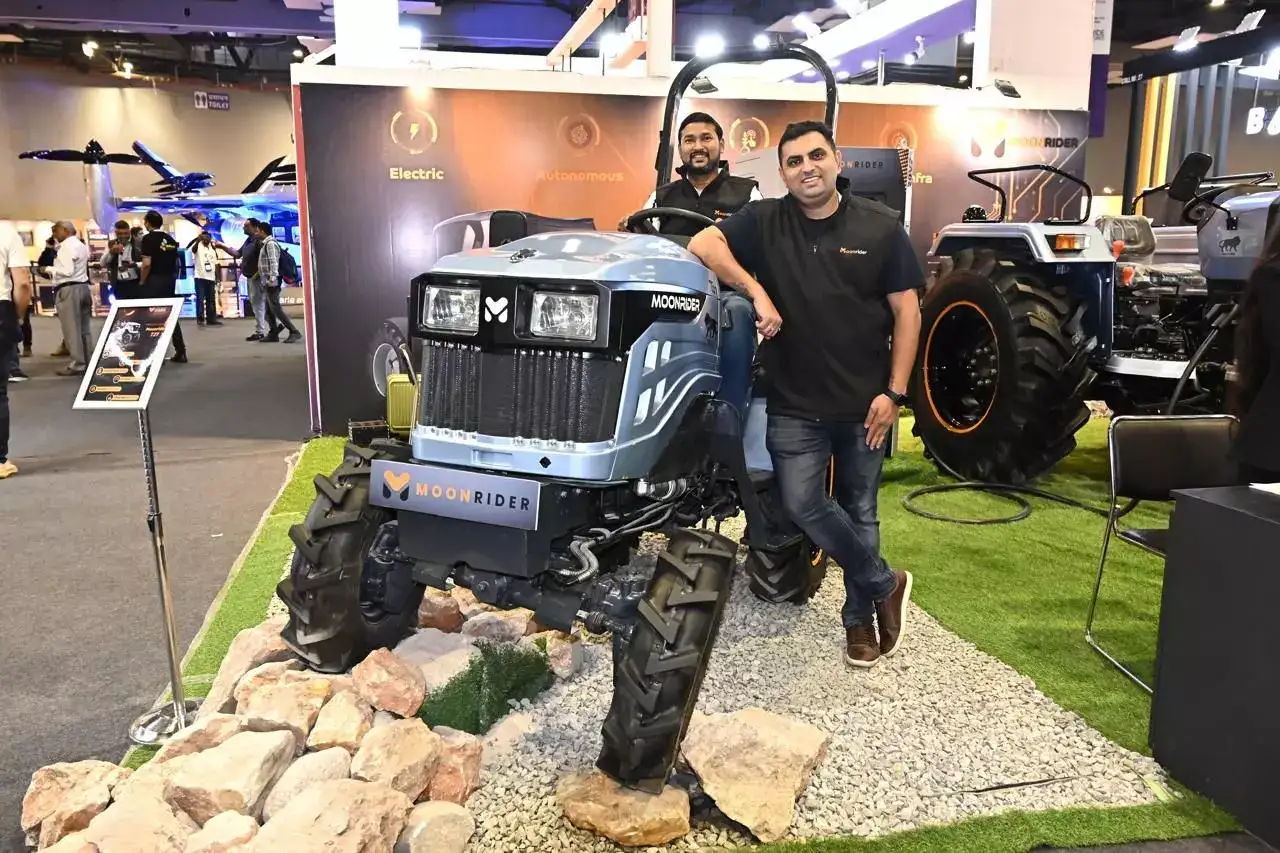Recharging Rural India: How Moonrider’s Electric Tractors Are Cultivating a Sustainable Future
In the sun-drenched fields of rural Karnataka, a quiet revolution is humming—not from the roar of diesel engines, but from the silent, powerful drive of electric motors. Meet Moonrider, a Bengaluru-based startup that’s redefining the future of Indian agriculture with next-gen electric tractors purpose-built for small and marginal farmers.
⚡ Farming Meets Clean Tech
Moonrider’s vision is bold yet beautifully simple: empower farmers with affordable, efficient, and zero-emission farming machinery. Unlike traditional tractors that guzzle diesel and require frequent maintenance, Moonrider's electric models run on swappable lithium-ion batteries, dramatically lowering operational costs while cutting carbon emissions to zero. These smart tractors are engineered for Indian conditions—compact, rugged, and adaptable to a variety of crops and terrains.
What sets them apart isn’t just the power source—but the tech-first design. Moonrider tractors come integrated with IoT-based monitoring systems, enabling farmers to track performance, battery levels, and usage patterns through a mobile app, even in areas with limited internet access.
💸 Lower Costs, Higher Yields
For many smallholder farmers, the cost of fuel and maintenance eats into already thin margins. Moonrider’s electric tractors cut fuel costs by up to 70% and require significantly fewer moving parts, making them easier and cheaper to maintain. A single battery charge offers enough torque and runtime to plough, sow, or carry loads for several hours—perfect for day-long village operations.
And when the battery does run low? Farmers can simply swap it out, a model that Moonrider is piloting through battery-swapping stations in regional agri-hubs, reducing downtime and boosting productivity.
🌱 Built with Bharat in Mind
Moonrider isn’t importing electric parts and slapping them on tractors. Their approach is "Made for India, Made in India". From rugged wheels built for dusty fields to rain-proof wiring for monsoon resilience, every component is engineered with India’s rural realities in mind. Even the UI of the tractor’s smart dashboard supports multiple regional languages—because innovation shouldn’t come with a language barrier.
Moreover, the startup is committed to inclusive growth. They’ve partnered with self-help groups and farming cooperatives to train rural youth in e-tractor servicing, creating employment while ensuring service accessibility in remote villages.
🌍 More Than a Tractor – A Sustainability Ecosystem
Moonrider’s innovation goes beyond just electrification. Their model supports regenerative farming practices—low-noise, low-emission tractors enable early morning ploughing without disturbing the natural ecosystem. The data collected by their smart systems can help farmers optimize fertilizer use, reduce water wastage, and even predict seasonal yield patterns.
And the impact is real: early pilots across Karnataka and Maharashtra show that farmers using Moonrider tractors reported up to 25% savings on operating costs and a marked reduction in fuel dependency.
🚀 The Road Ahead
Moonrider is gearing up to expand operations across India’s agri heartlands—Telangana, Punjab, Madhya Pradesh—while also eyeing opportunities in South Asia and Africa, where smallholder farming dominates. Backed by climate-focused VC firms and agri-tech incubators, they are already in talks to develop solar-charging microgrids for village-level tractor hubs.
Their ultimate goal? Build a climate-positive agri-tech platform that recharges not just batteries, but the backbone of India—its farmers.
In a time where sustainable solutions often seem out of reach for the rural poor, Moonrider proves that green tech can be grassroots too. With every electric turn of their wheels, they’re not just cultivating crops—but cultivating change.
— Written by Aditya Sharma, Agri-Tech & Clean Energy Contributor



.png)








0 Comments